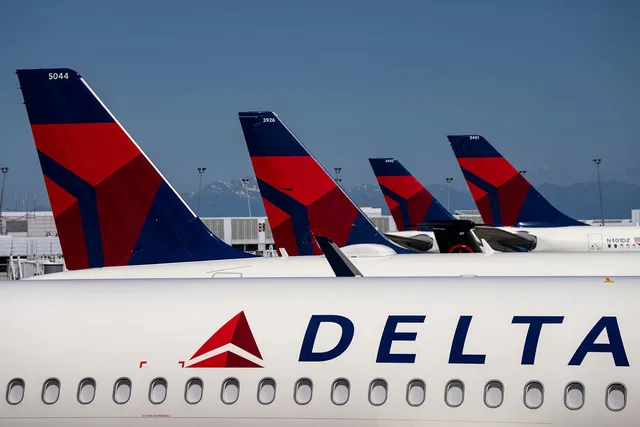Why Delta’s premium seating is a blueprint for the future of commerce
Delta's premium seating revenue to overtake economy in 2026 – what that means for the 'premium category' across commerce

Delta's premium seating revenue to overtake economy in 2026 – what that means for the 'premium category' across commerce
Delta Air Lines' recent Q3 earnings announcement, highlighting the expectation that premium seat sales will overtake economy revenue in 2026, is not merely aviation news. It is a critical signal that a fundamental, structural shift is underway in how high-net-worth consumers define and purchase value across all service industries.
Or, could these moves be broadening the definition of 'premium' segments?
The fact is, these individuals are no longer content with purchasing a single product, whether it’s a flight, a room, or any other item.
This segment of consumers is investing in a seamless, personalised, and fully integrated service journey. They are willing to pay for tailored in-flight dining options, seamless last-mile ground transport, concierge services at their destination, and other personalised amenities.
For businesses serving this cohort, the mandate is becoming ever so clear: own more of that journey or risk commoditisation.
Where integrated experience is redefining value
As the largest U.S. airline by market capitalisation, Delta is hardly alone among airlines branching out. There is an industry-wide re-evaluation of the business model, where major carriers are recognising they must, at the very least, strategically control the entire customer journey.
This recognition is driving structural moves across the sector, essentially verticalizing the experience stack.
International Airlines Group (IAG), the owner of British Airways, has an accelerator programme and a venture fund to implement new technologies and business models, as well as a dedicated R&D team focused on creating new products and services.
Through its Innovation Hub, Lufthansa offers an entire suite of products for the travel industry.
What’s more, demand for integration and frictionless service is rapidly redefining market structure in adjacent industries.
Take hospitality, for instance. The modern luxury guest demands that health, wellness, and bespoke operational service are embedded into their stay. The property must function as a centre for personal optimisation, not just a temporary waypoint.
This is evidenced by the growing trend toward health and longevity resorts, where companies are integrating personalised health diagnostics and wellness protocols directly into their hospitality offerings.
Case in point: Hyatt’s $2.6 billion acquisition of Playa Hotels & Resorts, which cemented the value of owning the end-to-end, all-inclusive guest experience and proved the high-margin potential of a single, frictionless service bundle.
And thanks to companies like Mews and their API-first property management systems, airlines, luxury hotels, and high-end tour operators can easily integrate best-in-class third-party applications for personalisation and service delivery.
Then, there’s fintech, where the power of a high-value customer base increasingly derives from the flexibility to deliver seamless, integrated services whenever and wherever they need them. The resulting shift is moving finance away from rigid, single products and towards services that are fully embedded and contextually deployed into the wider consumption experience.
Look no further than BlackRock's multi-billion-dollar acquisition of Preqin, which underscores the need to integrate massive alternative data sets. The move was designed to embed Preqin's detailed private markets data directly into BlackRock’s Aladdin platform, enabling truly personalised portfolio management and risk analysis for institutional clients.
A point could be made that this trend also drives headless banking, where financial institutions use APIs to deploy services at the exact right point of need (e.g., instant, tailor-made credit for a traveller).
The strategic value of AI-driven personalisation is shown in moves such as OpenAI's acquisition of AI-powered personal finance app Roi, suggesting that even core AI platforms are acquiring talent to deepen their specialised capabilities in financial personalisation.
Investing in the experience stack as the broader picture
Examples are aplenty, but the Delta story underscores a critical VC thesis: the future is not just premium, but also integrated and frictionless. The next generation of billion-dollar (perhaps even trillion-dollar) businesses will be those that successfully verticalize their offering by building or buying a technology stack that eliminates friction points.
For airlines and adjacent industries, this creates a massive opportunity. The former will evolve into experience brokers, while the latter must transform into composable service providers. For hotels, retail platforms, and financial institutions, the race is on to develop the so-called headless infrastructure that can seamlessly receive and deliver requisite components of the customer journey to remain relevant partners in this newly integrated ecosystem.
Failure to do so means becoming a low-margin commodity plugged into someone else’s branded experience.
The signal is clear: value is migrating up the stack, away from commodity products and toward integrated experiences. Every business leader who serves the high-end consumer segment must evaluate where their product ends and the customer's experience begins.



